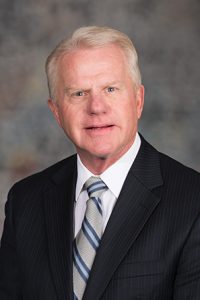Proposal would extend, increase funding for rural housing program
The Business and Labor Committee heard testimony Feb. 14 on a bill that would update an existing grant program in an effort to increase workforce housing in rural communities.

The Rural Workforce Housing Investment Act, passed by the Legislature in 2017, provides grants for the construction of workforce housing in counties with fewer than 100,000 people. Grants are available to nonprofit development organizations in eligible communities.
LB1069, introduced by Gothenburg Sen. Matt Williams, would extend the grant program — which had been set to expire at the end of this fiscal year — through FY2026-27. The bill also would increase the maximum allowable cost to construct an owner-occupied housing unit from $275,000 to $325,000 and for rental housing units from $200,000 to $250,000.
The current $2 million cap that a nonprofit development organization can receive would be removed and replaced by an amount set by the director of economic development. Additionally, the bill would reduce the required local matching grant from a one-to-one match to 50 percent. Projects that receive funds from the National Housing Trust Fund would be ineligible for the program.
Williams said $7 million was awarded to 14 rural nonprofit organizations in 2018 under the existing program, and by 2021, over $110 million worth of property, including 800 housing units, had been built in rural communities. The return on investment for the state is significant, he said, but workforce housing needs persist.
“In addition to a worker shortage, we also have a significant shortage of available workforce housing,” Williams said. “With COVID-19, we have seen increased housing costs, supply chain delays and fewer contractors — amplifying this problem.”
In support of the bill was Bob Hallstrom of the Nebraska Bankers Association. Increasing the maximum cap for housing units is necessary, he said, due to high housing occupancy rates, inflation and pandemic supply chain issues. Additionally, Hallstrom said, decreasing the required local matching grant would help small communities.
Korby Gilbertson testified in support of the bill on behalf of the Nebraska Realtors Association and several home builders associations. She said the rural housing program isn’t taking anything away from the free market, but rather is benefiting everyone who uses the grant funds.
“Builders can’t afford to take the risk and in light of the cost of building in rural areas … the pandemic and the massive increase in the costs of inputs, many builders have had losses,” Gilbertson said. “This grant process at least allows them to remain whole.”
No one testified in opposition to LB1069 and the committee took no immediate action on the bill.

